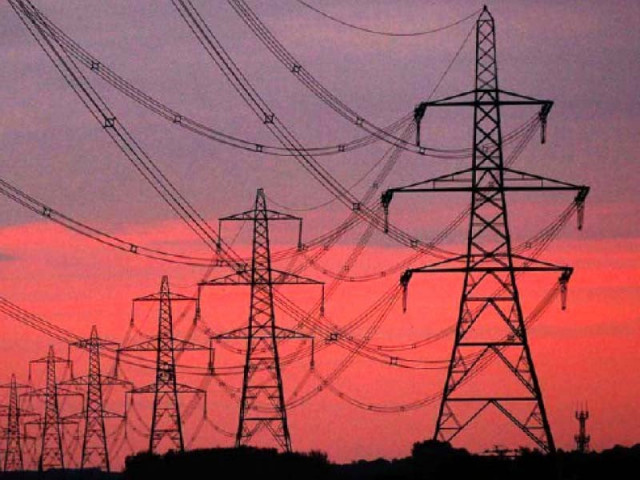ECC approves Rs7.91 power tariff hike
IMF demands more measures to revive programme

Amid the International Monetary Fund’s (IMF) disapproval of the new budget, the Economic Coordination Committee (ECC) of the cabinet on Monday approved another increase of Rs7.91 per unit in the electricity prices to recover additional Rs891 billion from consumers.
Earlier, the government approved the withdrawal of Rs5 per unit electricity subsidy with effect from June that former prime minister Imran Khan had given in February. With the latest approval, electricity prices would cumulatively jump by a whopping Rs12.91 per unit or 108% against March prices benchmark. This will put an additional Rs1.45 trillion burden on the consumers every year.
The ECC also approved Rs260 billion supplementary grants and budgetary support to keep the supplies of petroleum products smooth, run the power plants through imported LNG and fund the provincial governments’ fiscal operations. But it once again deferred the approval of opening a bank account to save China-Pakistan Economic Corridor (CPEC) energy projects from circular debt due to fear of IMF retaliation.
The ECC took these decisions on the day the IMF, for the first time, gave its reaction to Friday’s budget. In a statement, the IMF found the proposed budget short of expectations.
“Our preliminary estimate is that additional measures will be needed to strengthen the budget and bring it in line with key programme objectives”, IMF Resident Representative to Islamabad, Esther Perez told The Express Tribune.
Perez said that the IMF has noted the submission of the “draft budget” to the National Assembly last Friday. “The discussions with the authorities continue to obtain more clarity on certain revenue and spending items,” she added.
She reiterated the IMF’s readiness to continue to support the Pakistani government’s efforts in this respect and, more generally, for the implementation of policies to promote macroeconomic stability.
The ECC on Monday approved certain measures that may be taken as a step towards, achieving the IMF programme’s objectives. The Energy Ministry submitted a summary for increasing the electricity prices by Rs7.91 per unit, which the cabinet body had approved to meet a condition of the IMF.
“The ECC after detailed discussion approved the annual rebasing plan with certain modifications”, the Finance Ministry said. The ECC also directed the Power Division to recommend subsidy reform adjustment for unprotected consumers, which was approved in December 2021 but not implemented, it added.
The ECC approved the implementation of the Rs7.91 per unit increase in three phases. The first phase of Rs3.50 per unit will take effect from July, the second, also of Rs3.50 per unit, from August and third of nearly Rs1 per unit from the following month, according to the decision.
The summary will today (Tuesday) be placed before the federal cabinet to seek its ratification for Rs7.91 per unit increase,” Finance Minister Miftah Ismail said.
Read Miftah makes pitch for hike in fuel, power prices
The cumulative additional revenue impact of Rs7.91 per unit increase is estimated at Rs891 billion and there is a 48% increase in prices. After including the Rs5 per unit increase that the government implemented from this month, the total increase in prices would come to Rs12.91 per unit, having additional burden of Rs1.45 trillion.
After increasing the petroleum products prices by Rs60 per litre, the sources said, the government would also have to increase the petrol price by Rs19 and diesel by Rs53 just to end the subsidies. Any backtracking on the increase could still jeopardise the IMF programme.
The ECC also approved a Rs50 billion subsidy to keep the power plants running. But it deferred the opening of the bank account to give a credit line to the Chinese power plants for saving them from the circular debt.
The government is contractually obligated to open the fund and place money equal to 22% of the power generation cost but the IMF has linked any relief to Chinese IPPs with their willingness to renegotiate the IPP deals.
The ECC also approved Rs36 billion to facilitate the PSO and the PLL for the import of 12 LNG cargoes in June. These entities are facing revenue shortfall due to the circular debt in the gas sector. The Petroleum Division has demanded another Rs174 billion from the budget for the import of the LNG for the July-September period.
The ECC approved Rs25.6 billion to pay for the subsidies on the petroleum products, bringing the total subsidies to Rs244 billion till 15th of June. The country is bearing this cost due to bad decisions of former prime minister Imran Khan and indecisiveness of current Prime Minister Shehbaz Sharif.
The ECC also approved Rs130 billion for ways and means advances availed by provincial governments. The provincial ways and means limit is Rs164 billion that has already been exhausted due to overspending by the Khyber Pakhtunkhwa government.
The ECC approved extension in the Prime Minister’s Relief Package-2020 up to 30th June, 2022 on all the five essential items and allowed that ghee shall be sold at all USC outlets throughout the country at Rs300 per kilogramme from 9th June, irrespective of the higher market prices. The subsidised ghee will cost the government Rs2.3 billion. Another Rs1.2 billion is approved for subsidy on four essential items –wheat flour, sugar, rice and pulses.
The ECC allowed the Pakistan International Airlines to make Rs1.6 billion sales tax payment to the FBR in instalments due to its poor financial condition. The PIA has taken four aircraft on lease at a cost of Rs9.4 billion.
The ECC approved Rs4 billion for paying the cost of Gilgit-Shandoor road. A Rs3.5 billion subsidy is approved to pick the cost of Octri tax to the Sindh government.



















COMMENTS
Comments are moderated and generally will be posted if they are on-topic and not abusive.
For more information, please see our Comments FAQ